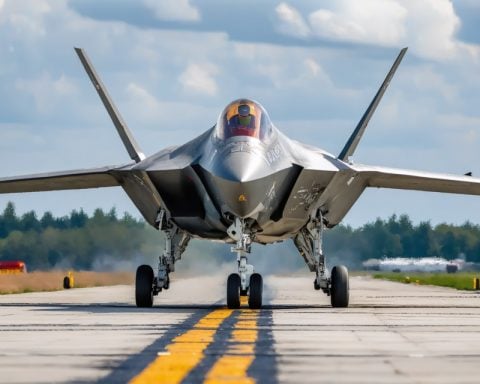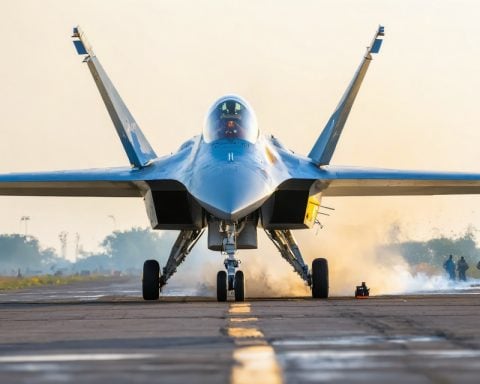In a strategic discussion, Ukraine’s Defense Minister, Rustem Umerov, and Norway’s Defense Minister, Bjørn Arild Gram, focused on enhancing Ukraine’s military strength amid ongoing challenges.
The meeting occurred during the NATO-Ukraine Council assembly, highlighting the collaborative efforts between the two nations. Umerov expressed gratitude for Norway’s unwavering support, emphasizing the critical need for advanced weaponry and long-range missiles. Both ministers reached consensus on boosting Ukraine’s air defense systems to ensure the nation’s security.
The considerations extended to the integration of F16 fighter jets, marking a significant enhancement in Ukraine’s aerial capabilities. Norway committed to delivering six aircraft in the upcoming period, reflecting a deepened partnership.
Further discussions sought to fortify Ukraine’s defense industry. Umerov advocated for Norway’s participation in direct financial support for Ukrainian defense firms through a model akin to the “Danish model.” Additionally, he suggested Norway adopt a mentorship role for one of Ukraine’s brigades, an approach similar to tactics employed by France that include comprehensive training and supply assistance.
The cooperative dialogue underscored Norway’s steadfast commitment to Ukraine’s military and strategic empowerment. In a related development, the Norwegian Foreign Minister, Espen Barth Eide, affirmed collaborative backing for President Volodymyr Zelensky’s vision for Ukraine’s future, which includes aspirations for NATO membership.
The Impact of International Military Alliances on National Security
International military alliances play a crucial role in shaping the security landscape of nations, communities, and even entire regions. Such alliances often lead to not only enhanced military capabilities but also strengthened political relationships and economic ties. These strategic partnerships are multifaceted and can lead to significant changes in how countries approach their defense and international policies.
Advancement in Military Technology and Capabilities
One of the primary impacts of international military alliances is the access to advanced military technology and weaponry. For instance, Ukraine’s collaboration with Norway has paved the way for acquiring F16 fighter jets, which considerably boost Ukraine’s aerial capabilities and defense posture. These kinds of upgrades can turn the tide in ongoing conflicts and provide countries with a strategic edge, enhancing their ability to protect their sovereignty and territorial integrity.
With advanced technology comes the need for comprehensive training programs. Collaborative efforts, similar to those suggested between Ukraine and Norway, often include joint training exercises. These activities not only improve the operational readiness of military forces but also promote mutual understanding and interoperability among allied nations.
Economic Benefits and Industrial Growth
Military alliances don’t just impact defense; they can also stimulate economic development within the partner countries. Defense contracts and military sales often lead to job creation and growth in the defense sectors of the countries involved. Moreover, as seen in the proposed “Danish model” for Ukraine, direct financial support for defense firms can invigorate the local defense industry, strengthening a nation’s economic resilience.
This economic engagement can extend beyond defense to broader economic cooperation. When nations work closely on defense matters, they often find common ground in trade, energy, and infrastructure projects, boosting overall bilateral relations.
Geopolitical Shifts and Strategic Balance
Strategic alliances can also alter geopolitical dynamics. As countries like Ukraine seek NATO membership and the support of nations such as Norway, it highlights a shift towards aligning with Western military and political frameworks. This can lead to increased stability in regions that might otherwise be prone to conflict, ensuring a collective security approach that deters potential aggressors.
However, these shifts are not without controversy. The expansion or deepening of military alliances can heighten tensions with other global powers, leading to debates over sovereignty, influence, and regional dominance. For instance, nations outside such alliances might view these partnerships as a threat, potentially escalating tensions and leading to an arms race mentality.
Community Impact and Public Perception
The implications of international military alliances also resonate within communities. On one hand, there can be a sense of increased security and patriotism among the populace. On the other, communities might express concern over increased military presence and its consequences on everyday life. Additionally, public perception can be shaped by how effectively these alliances address national security concerns without compromising human rights or leading to unnecessary military escalation.
In conclusion, international military alliances significantly influence national and regional security landscapes. They enhance military capabilities, foster economic growth, and reshape geopolitical balance, though not without their share of controversies and challenges.
For those interested in exploring more about military alliances and their global impact, you might find valuable insights through resources such as NATO and United Nations. These platforms provide a wealth of information on international security issues and cooperative defense efforts.







